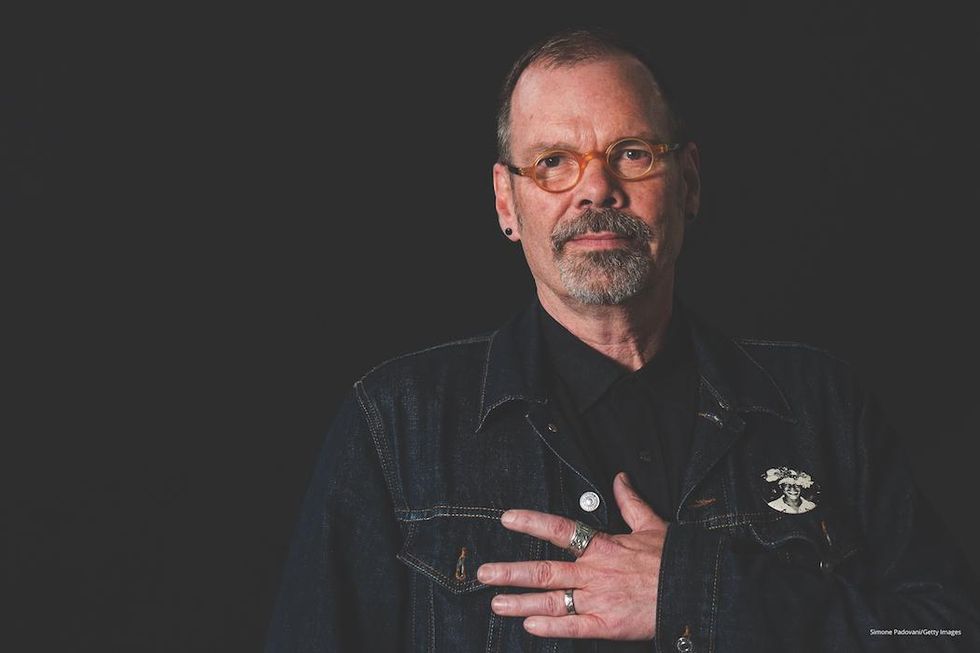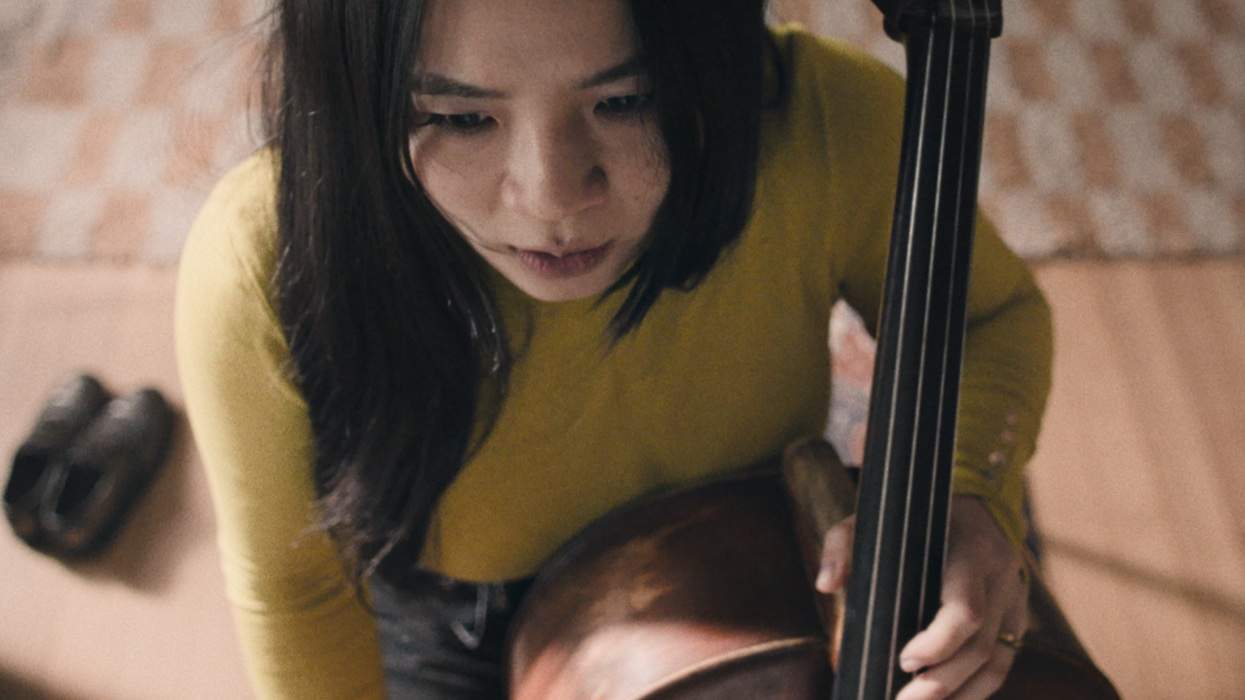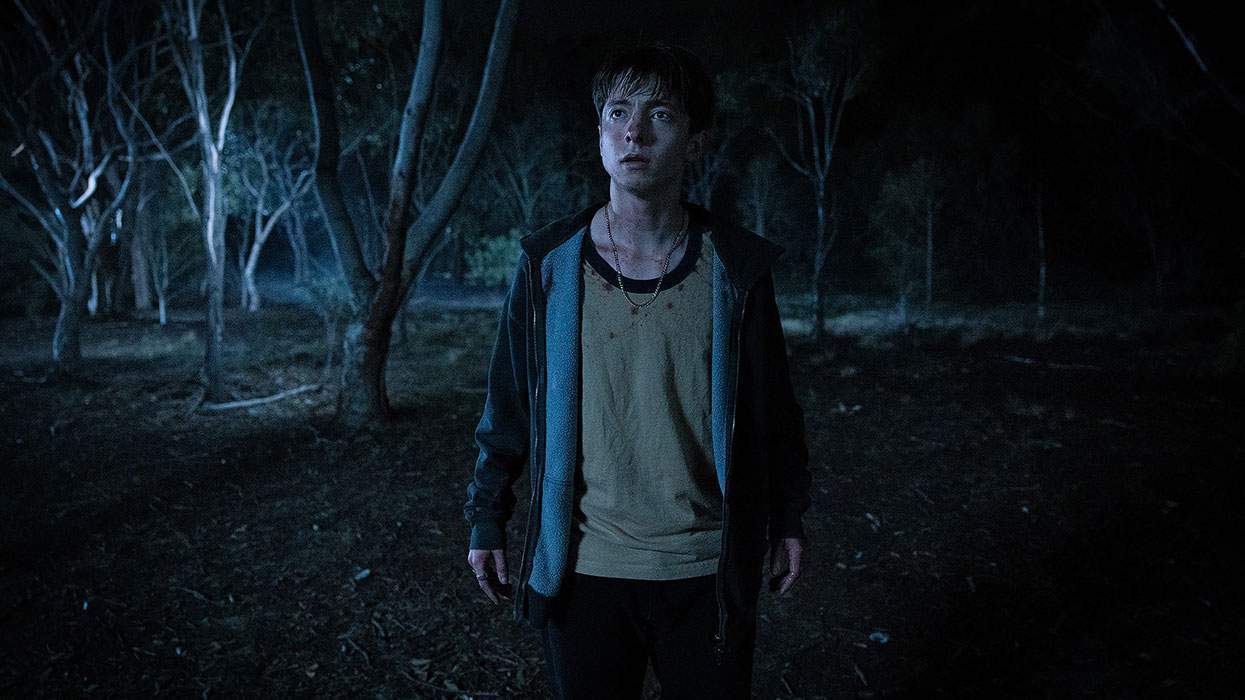Filmmaker David France first read about the horrific anti-LGBTQ+ purge in Chechnya in early April 2017. At the time, reports were surfacing daily about missions sanctioned by President Ramzan Kadyrov to abduct, imprison, torture, and in some cases kill innocent queer people. But in a matter of months, they seemed to vanish from the mainstream news cycle.
"Nothing else was published about it," France tells The Advocate. "No world leaders were demanding accountability from Russia in any way. It was a story that just died."
Many weeks later, journalist Masha Gessen published a piece in The New Yorker revealing that the atrocities were ongoing and that in the absence of international political pressure, queer people had cobbled together a vast underground network of safe houses, contacts, and pipelines to get LGBTQ+ people out of Chechnya, a semiautonomous republic within Russia.
Using Gessen's report as a catalyst, France traveled to Chechnya and for the next two years became embedded inside a network of underground activists risking their lives by performing daring rescues of LGBTQ+ people in what they call "extractions."
The experience culminated in Welcome to Chechnya, an eye-opening HBO documentary highlighting this small but courageous underground railroad. The film premieres on HBO on Tuesday, June 30.
"I was heartbroken by the extent of the injuries that people were suffering," France recalls. "There was a young man there whose skull had been cracked open, who'd been dropped back at his parents' house and left for dead on the doorstep [and] many families were pressed into finishing the act for the government. The government started demanding so-called honor killings. Demanding them, enforcing them, bringing in relatives of gay people, and saying, 'Why have you not killed this person yet?' In today's world, it was just stunning to me."
Details of such assaults first came to light in December 2016, when the Russian LGBT Network began receiving tips from persecuted LGBTQ+ Chechens. After it investigated, the Russian news outlet Novaya Gazeta published one of the first stories outlining the gruesome details.
Research revealed that Chechen authorities had opened concentration camp-like prisons for queer people, 100 of whom were abducted in an initial wave of state-sanctioned kidnappings. In early 2019, it was reported that authorities launched another wave, detaining around 40 LGBTQ+ people.
When the story first broke, the Russian LGBT Network posted a hotline that was shared widely among queers in Chechnya. It was through this hotline that LGBTQ+ Chechens were able to make contact with people like David Isteev, head of the Russian LGBT Network who is also in Welcome to Chechnya. Isteev and his team would arrange ways for them to escape out of the region, and essentially put them into an underground pipeline he and his team had built.
Kadyrov and Russian President Vladimir Putin denied such purges are taking place. Meanwhile, LGBTQ+ people in the outer regions have been arrested and detained over the years for daring to protest the atrocities. Countries including Germany, France, and Canada have quietly granted asylum to refugees. The U.S., however, has not.
"It's a closed society, like North Korea," France says of Chechnya. "People don't come and go. It is an entirely monitored life, so there is no pushback against the Chechen authorities, nor could there be."
But there's also another network at play -- one led by Kadyrov with the aim of persecuting queer Chechens who managed to escape.
In the 1990s, there were two disastrous wars in Chechnya when Russian forces attempted to regain control over the country, which had declared independence in November 1991. In the early 2000s, Chechnya had developed a significant separatist movement and tried to split away from Russia altogether. Russia responded by bombing and killing a huge number of Chechens, virtually flattening the region.
By 2004, Chechnya was the most devastated principality in the world. During this time, many Chechens fled to other parts of the world. A large number of that population reside now throughout Europe and parts of North America and South America.
According to France, these populations have since organized into diasporic communities with obligations to the Grozny government in Chechnya, and continue to be engaged and mobilized in the blood cleansing campaign against LGBTQ+ people.
"This campaign is a 'blood cleansing' campaign," France says. "If it becomes known that there is a gay Chechen [living outside of Chechnya], the Chechen leadership puts pressure on the family members to bring that person back."
Even in Toronto, where there happens to be a population of Chechens, refugees must still live in hiding because there is a diaspora in Canada organized by Chechen leaders, whose responsibility it is to find these refugees and carry out their orders.
"My biggest concern was that by my presence, I will be giving away what was going on," the director says of the filming process. "We rehearsed a false narrative for why I was there and what I was doing. We were shooting with a little consumer video camera and my cell phone in such a way as to not let anyone know that we were filming. We were filming in public from time to time and we couldn't let anybody know."
At one point, after France and his team did an extraction, they were speeding out of Chechnya in two separate vehicles. France's car was stopped by authorities, but the other (which held the victim they rescued) was not.
"My passport gave me away as as an American," he remembers. "I was taken into custody for a relatively short period of time. I was very worried not so much for myself -- my security had run all probabilities and had determined the worst that might happen to me is that I would get banged up and and escorted out of the Republic. I was worried that some how they would determine I was linked to the other car and they would find the people that were being rescued and the rescuers. So that's what really worried me, that I would somehow trigger an event of great peril for the others. Luckily it didn't happen."
The means of escaping Chechnya are vastly different per person. Male Chechens sometimes get out of the country if they alleged they were going for a job interview or some other kind of civic purpose. Females, however, are more difficult to extract.
Traditionally, Chechen women are often escorted by men to school, their jobs, and treated like "precious possessions," says France.
"So if you get in a car as a single woman and drive north out of the Republic, that's a very suspicious act," he explains. "Women are taken into custody just because they're [traveling without an escort] and their families are contacted to try to understand what the hell's going on. Like, 'Why did you let this young woman travel on her own?' Then she's returned to her family."
Extracting queer Chechens to safety requires more than a good cover story. As France discovered, you need a legitimate reason to leave the territory and buying a ticket out is difficult even in normal circumstances. An added challenge in addressing the crisis is that information outside of Chechnya is bleak at best.
"They couldn't tell their stories because they were being pursued to the end of the earth, so we haven't seen those stories. We haven't heard them," France says of queer refugees. "We don't know, from the ground, what's happening there. It wasn't until Masha's piece in The New Yorker that we started to get a picture of it. And it's not until people see this film that they're going to understand the real human tragedy."
To protect the identities of those seen in the film, France developed a unique post-production method. Instead of big blurry censor blocks or deep, shadowy voices, the director layered their faces with those of real American LGBTQ+ activists who donated their likeness as a means to protect them. The beautiful result achieved its aim to humanize their stories.
It is only natural for viewers watching the HBO documentary to get mad. In fact, that's the whole point. But the real question is: What can we do about it now?
"The answer to that has shifted with COVID-19," France explains. "What the activists wanted, and why they invited me to join them on this journey, was for the world to put pressure on their own government to demand an end to this campaign, and to open up special humanitarian parole visa channels for people fleeing Russia."
These kinds of channels are hard to open up anywhere, France explains, because it goes against all the International conventions on refugees and asylum seekers.
"This is a special kind of side deal that some governments have made that says, 'Yes, if you're fleeing a certain kind of persecution, we will open up a number of visas for you to come into the country.'"
Many Western countries opened up those visa programs for protection refugees early on, but it's hard to keep them open long-term and some have closed the programs altogether. Given that there is no global travel at the moment, Chechnya is under a brutal lockdown, making the rescue work nearly impossible.
"The ask today is twofold: Help empower the activists in Russia by supporting The Russian LGBT Network and the Moscow LGBT+ Community Center," France pleas.
These two organizations, specifically, are housing queer people in safe houses. Due to the pandemic, they are unable to get them out of the country so they're moving them from safe house to safe house, through Russia, which is an incredibly expensive undertaking -- and one that they can't stop.
"Make the world know that you see this and that you're not blind to it, that we're not blind to it," he says. "We know what's going on. We have heard the stories now. We have seen the toll on the victims and we're not going to let it just go quietly."
France and the film's producers have launched a campaign to bring more resources to those in Chechnya. Visit WelcomeToChechnya.com to learn more.
Welcome to Chechnya premieres on HBO on Tuesday, June 30.
















Charlie Kirk DID say stoning gay people was the 'perfect law' — and these other heinous quotes
These are some of his worst comments about LGBTQ+ people made by Charlie Kirk.